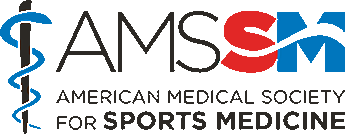 What is it? Heat urticaria, also called cholinergic urticaria, refers to hives caused by increased core body temperature due to active or passive body warming. The most common causes are exercise, strong emotions, hot ambient temperatures, spicy foods, and bathing in hot water. Many individuals endorse tingling, itching, or burning before the hives are visible, and then many small wheals develop. The redness can spread and coalesce to form large red areas. It usually begins on the neck and trunk and spreads to the arms and legs. It commonly occurs in the 2nd and 3rd decade of life and lasts for an average of 7.5 years, with only 31% lasting longer than 10 years.
Evaluation of Heat Urticaria Typically, a thorough interview and physical exam by a sports medicine physician is sufficient to make the diagnosis. The physician will ask about precipitating factors and symptoms and evaluate the rash thoroughly. If needed, diagnostic testing can be done, but there are often many false negatives. If the hives occur during the testing, it confirms a diagnosis of cholinergic urticaria.
Treatment The first part of treatment is to identify triggers for the hives and avoid them. Symptomatic athletes should not bathe in hot water or exercise in hot weather. If an athlete has significant symptoms, he or she can take an over the counter antihistamine (such as loratadine or cetirizine) daily or as needed after discussion with a physician. The medication can be taken as needed if the trigger can be avoided on most days, or the medication can be taken daily if the trigger occurs frequently. Alternative medications can include hydroxyzine, ranitidine, montelukast, and beta blockers such as propranolol. Some individuals also find that desensitization to the trigger decreases the frequency of episodes.
Symptoms/Risks The most common side effect to antihistamines is drowsiness. Loratadine and Fexofenadine are non-sedating, but are not always effective at treating the urticaria. Hydroxyzine should be taken at night and titrated up slowly due to the sedating effect. All medications should be used at the lowest dose necessary to prevent and relieve symptoms and as prescribed by a physician.
Injury Prevention It is not specifically known why some people develop heat urticaria and others do not. The best way to prevent the urticaria is to try to identify the trigger and avoid the trigger, if possible.
Return to Play Athletes generally do not need to take time off from playing or competition. To prevent urticaria from disrupting exercise, athletes should take an antihistamine before practice or a game to prevent the development of symptoms after a discussion with their sports medicine physician. AMSSM Member Authors References Category: Allergies and Immune System, Dermatology (Skin) Issues, [Back] |

